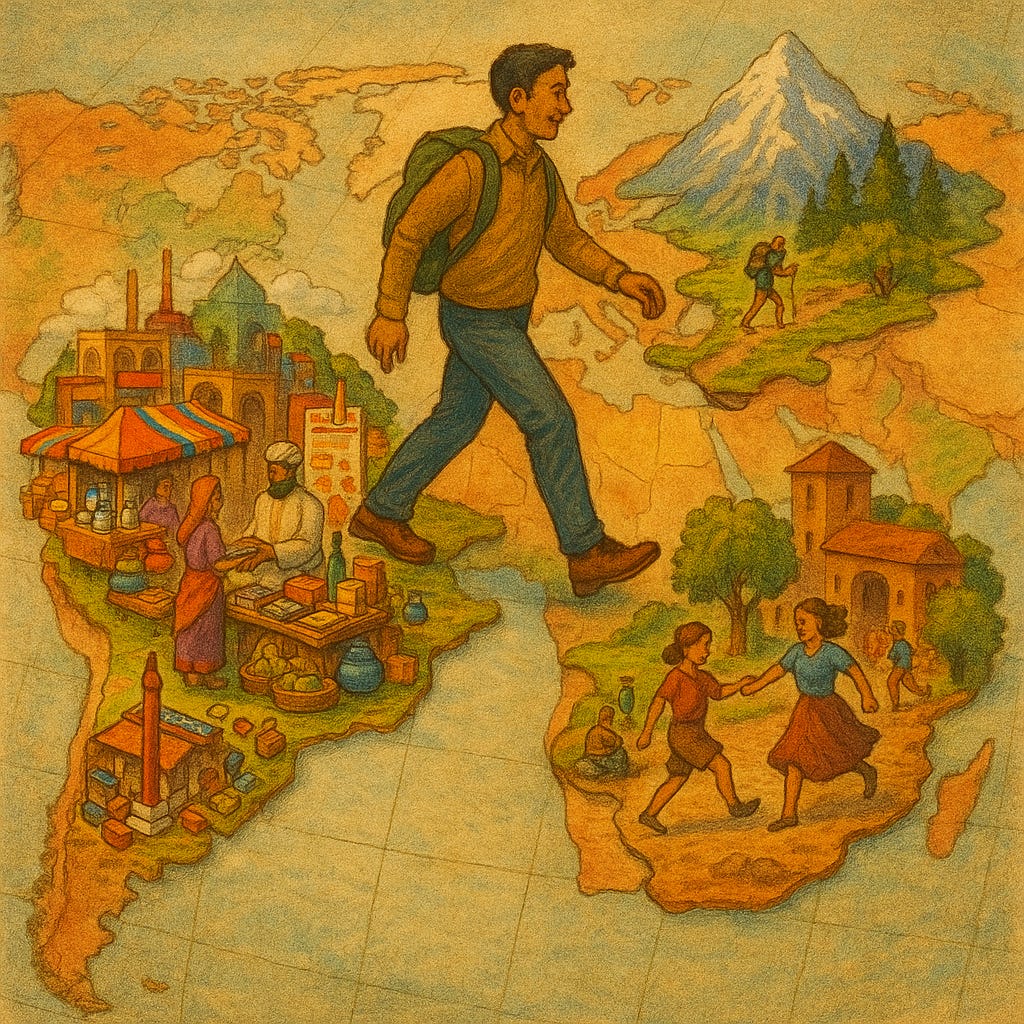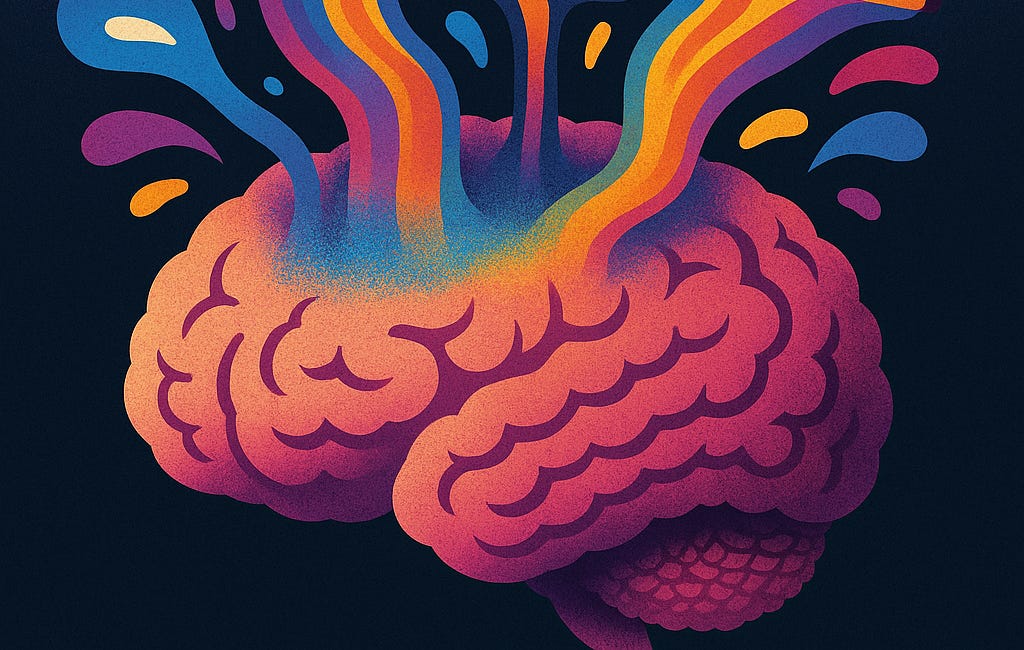Joan is Awful: Reclaiming the Mind (5/5)
A system where attention is currency, and distraction is profit. For real change, both governments and corporations must admit their influence and wield it with care.
This is the final piece in our series exploring how technology affects our minds, decisions, behavior, and ultimately, our lives. If you haven’t read the earlier blogs, start from Blog 1: “How We Lose Attention” to fully absorb the context and build-up.
So, What’s the Alternative?
As a millennial, I’ve lived through the full arc of modern entertainment — from Surabhi and Chitrahaar (Family Shows) on Doordarshan (National Entertainment Channel) to a dozen OTT platforms whispering personal suggestions. What once brought families together now isolates us behind individual screens. We’ve gained choices, but lost shared experiences.
It’s time to ask not “what’s trending?” but “what’s changing me?”
And if we’re unhappy with the answers, here are some conscious alternatives:
1. Read Books — But Only the Right Ones
Reading isn’t boring. Reading the wrong book is. Try, fail, and eventually you’ll discover stories that speak to your soul and stretch your imagination. A good book teaches you to think, question, and wonder — habits that resist algorithmic control.
2. Talk to Different People
Every human is a walking podcast of untold stories. Speak to those outside your comfort zone — your building’s watchman, your neighbor’s grandmother, the tea vendor. These conversations bring perspective, humility, and real human connection.
3. Play, Move, Sweat
Sports and physical work are social rituals. They ground us in the present and connect us in joy. When bodies move, egos soften. Playing with people, not screens, restores your sense of community and agency.
4. Travel — Not Just to Relax, But to Rewire
Travel exposes you to lives you couldn’t have imagined. It deflates ego and renews curiosity. It’s harder to hate what you’ve tried to understand. And it’s easier to unlearn biases when you meet the people behind them.
5. Rotate OTT Platforms — Break the Loop
Switch platforms regularly. Don’t let one algorithm define your worldview. Watch regional content. Switch genres. Consciously disrupt your digital diet — just like you rotate food groups for better health.
6. Pick a Hobby That Isn’t Monetized
Not everything you do must be productive. Let some hobbies be just for joy. Writing, pottery, tennis, gardening — they reintroduce you to yourself without the noise. They remind you that you’re more than your job, feed, or follower count.
Ethics in the Age of Algorithms: Shared Responsibility
In a world where invisible algorithms shape what we watch, who we follow, and even what we believe, asking individuals to “be mindful” is just the start. The real shift begins when systems — both public and corporate — take responsibility. This isn’t about control. It’s about conscious guardianship of our collective attention and well-being.
What Governments Must Do: From Regulators to Tech Stewards
Governments can’t stay analog while the world goes digital. They must evolve — not just with better laws, but with better minds, embedded deep inside the system.
Speak the Language of Technology
Just like tax officers understand finance, tech regulators must understand algorithms. The UK’s Centre for Data Ethics and Innovation (CDEI) is already training public officers in AI ethics, while Estonia has data scientists within policymaking teams. India’s Digital Personal Data Protection Act (2023) shows early intent — but now needs sharper execution.Place Silent Observers in Tech Boardrooms
Imagine a trained government ethicist — like an independent director — quietly observing strategic meetings at major platforms. They don’t interfere. But if a product threatens mental health, democracy, or public trust, they can ring the bell. This is inspired by bioethics boards in medicine — silent until they must speak.Enforce the Red Lines
Singapore’s Pofma law shows how misinformation can be tackled swiftly. The EU’s Digital Services Act now mandates that platforms reveal how their algorithms work — even letting users opt out of profiling. That’s real power to the people. When algorithms harm society, governments must have both insight and bite.Collaborate with Ethical Hackers and Ex-Insiders
Just as ex-thieves make the best security consultants, tech insiders-turned-whistleblowers like Frances Haugen (Facebook) or Tristan Harris (Google) have revealed the dark underbelly of engagement algorithms. Rather than fear them, governments must hire and listen to them — they know where the bodies are buried.
Who Is Driving Whom? AI or the Firm?
With AI-driven pricing, the question arises: do companies truly control these algorithms, or have they set in motion systems they can no longer fully govern?
What Companies Must Do: Bake Ethics Into the Business Model
Ethics isn’t a compliance checkbox. It should be as core as the revenue model. Every click, scroll, and share is an outcome of intentional design. So companies must intentionally design for good.
Make Ethics a KPI
Salesforce has an Ethical Use Advisory Council. Microsoft follows a Responsible AI Standard that products must pass before launch. These are not CSR stunts — they’re design gates. Every team, from engineering to marketing, should be evaluated not just on scale, but on social impact.Measure What Matters
Platforms today optimize for “Time Spent.” But what if they also tracked Time Well Spent? The Center for Humane Technology advocates such metrics — valuing user satisfaction, mental well-being, and content diversity. Netflix already tracks “completion rates” — now imagine if it tracked “uplift scores” too.Ethics Scorecards Like ESG Reports
Just as investors now care about a company’s climate footprint, future consumers will care about digital conscience. Platforms could be ranked on transparency, user control, and wellness impact. This makes ethics a brand asset, not a liability.Link Ethics to Incentives
What gets rewarded gets repeated. If ethical practices — like reducing harmful content loops or promoting diverse viewpoints — also contribute to career growth, teams will naturally prioritize them. Designing for humanity must be good business.Show by Doing: Real Examples
Apple now markets privacy as a premium feature — showing that ethical UX can win market trust.
YouTube Kids has a curated, non-recommendation-based model — showing algorithmic restraint where needed.
Netflix’s The Social Dilemma, while made for audiences, sparked internal debates and redesigns — proving that storytelling can shift culture.
Why It All Matters
This isn’t about censorship or utopia. It’s about recalibrating a system that’s gone too far. A system where attention is currency, and distraction is profit. For real change, both governments and corporations must admit their influence and wield it with care.
Ethics can no longer be optional. It must be the operating system on which the digital world runs.
Relevant Blogs: -
Joan is Awful: How Technology Rewires Us? (4/5)
In our ongoing series on digital behavior, we’ve looked at how screens silently influence our actions and decisions. In this blog, we dive into the psychological shifts caused by digital consumption—what it does to our mind, our personality, and even our sense of reality.











you are right !